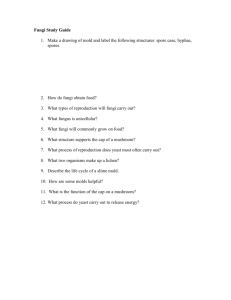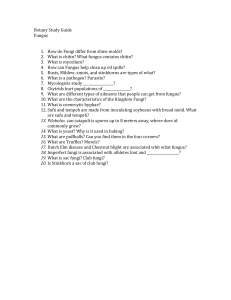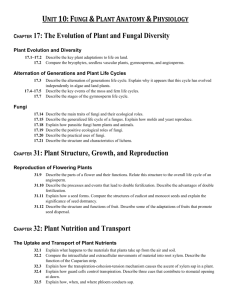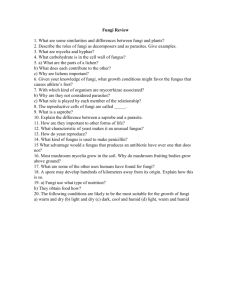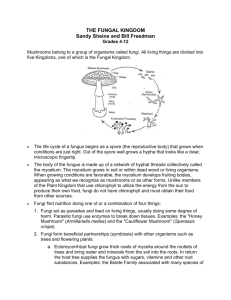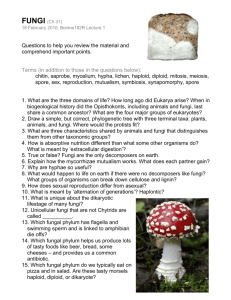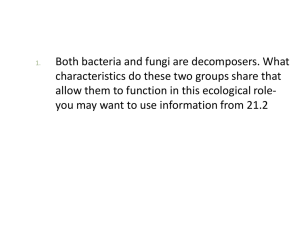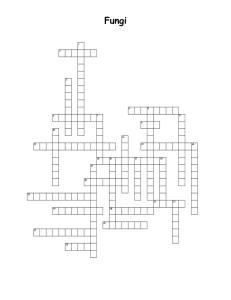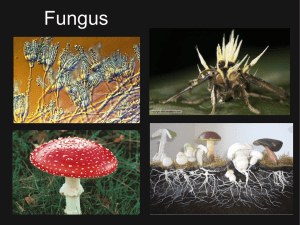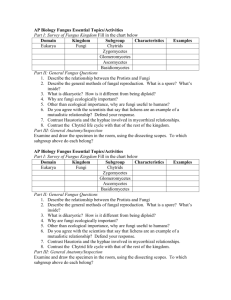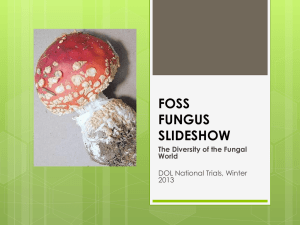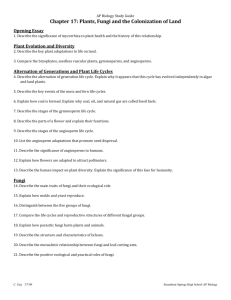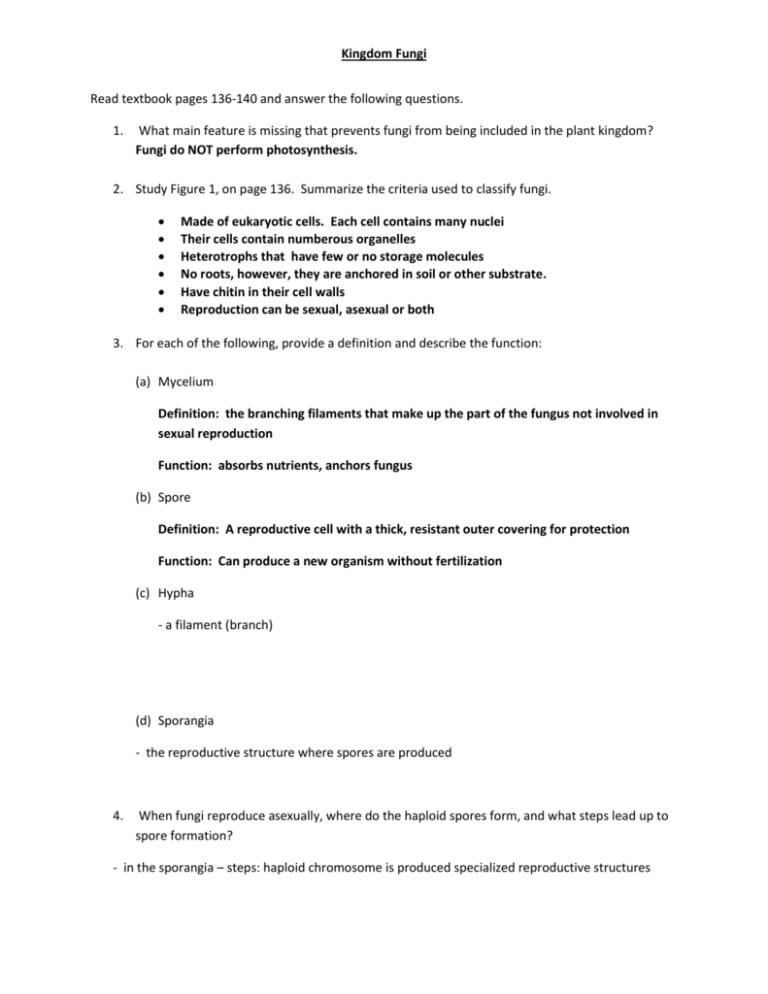
Kingdom Fungi
Read textbook pages 136-140 and answer the following questions.
1.
What main feature is missing that prevents fungi from being included in the plant kingdom?
Fungi do NOT perform photosynthesis.
2. Study Figure 1, on page 136. Summarize the criteria used to classify fungi.
Made of eukaryotic cells. Each cell contains many nuclei
Their cells contain numberous organelles
Heterotrophs that have few or no storage molecules
No roots, however, they are anchored in soil or other substrate.
Have chitin in their cell walls
Reproduction can be sexual, asexual or both
3. For each of the following, provide a definition and describe the function:
(a) Mycelium
Definition: the branching filaments that make up the part of the fungus not involved in
sexual reproduction
Function: absorbs nutrients, anchors fungus
(b) Spore
Definition: A reproductive cell with a thick, resistant outer covering for protection
Function: Can produce a new organism without fertilization
(c) Hypha
- a filament (branch)
(d) Sporangia
- the reproductive structure where spores are produced
4.
When fungi reproduce asexually, where do the haploid spores form, and what steps lead up to
spore formation?
- in the sporangia – steps: haploid chromosome is produced specialized reproductive structures
Kingdom Fungi
5. List several harmful effects resulting from the ingestion of poisonous mushrooms such as those
belonging to the genus Amanita. How can such harmful effects be avoided?
-
cramps, pain, vomiting and eventually death
-
don’t eat mushrooms!
6. Describe the role of the fungus partner in each of the following:
(a) Mycorrhizae – helps roots of plant absorb nutrients
(b) Lichens – mycelium surrounds photosynthetic cells of the green algae and provides them
with essential nutrients
7.
Hypothesize why a slice of store-bought bread might grow more slowly than a slice of
homemade bread.
Propanioate – bread has preservatives
8. List three benefits provided by fungi.
- used to make alcohol (beer and wine), medicine (penicillin), natural decomposers, helps plants
by creating nutrients for them, bioremediation, make bread rise, used to make soy sauce
9. List three harmful effects (or diseases) caused by fungi.
- ringworm, athelete’s foot, thrush, poisonous mushrooms

